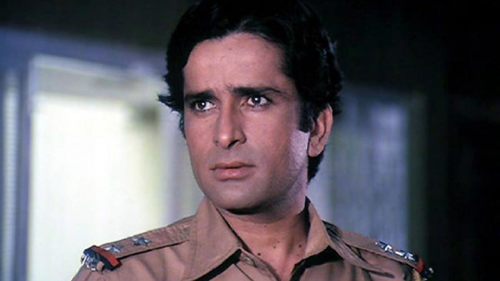LOEV Review: A Complicated Romance In The Indian Mountains
The scenery of Mahabaleshwar has differing connotations to the people of Mumbai. For the upper echelons of society, it’s usually a decadent weekend with friends spent in seclusion. For those who might not be able to afford it on a regular basis, it’s a family trip to a simple, scenic destination. In either case, the Maharashtra hill station is an escape from the mundane, and in Loev it takes on a new layer in addition: secrecy.
Sudhanshu Saria’s meandering mood-piece follows India’s unspoken queer youth – so unspoken that it never opts for any labels, be they gay, bisexual, or otherwise – focusing on a reunion between two old friends who now belong to distinctly different worlds. Independent music producer Sahil (Dhruv Ganesh, in his final role before his death) scampers about in the dark, making do with what he and his irresponsible boyfriend Alex have built. He irons clothes by candlelight, berating Alex for being too busy with his commercial gigs to even pay the bills, but his upcoming hillside excursion is a light at the end of this tunnel.
Enter Sahil’s childhood chum Jai (Shiv Pandit), a former Mumbaikar who, like so many well to do Indians, went to New York for college and stayed there long after. He’s the antithesis to Alex, a mature, level-headed Wall Street executive, always choosing his words with caution. Jai rents a BMW for the duo’s mountainous escapade amidst his brief business trip, while Sahil brings along homemade Indian delicacies that he knows Jai must miss abroad. He plays his old friend a recent song he produced, a western acoustic guitar forming the rhythm beneath the melody of an eastern bansuri flute. A distinct collision of cultures as Jai and Sahil drive to greener outskirts directly from the airport, neither of them entirely certain of their place in each other’s lives, but on board with the two days they have.
The ambiguity in their relationship isn’t merely an affectation; in fact, it’s the whole damn show. The first major wrench tossed into the plot comes over an hour into the film – Sahil puts Jai’s supposed comfort with his sexuality to the test in a… not so private setting – followed by the second, an awkward dinner with Alex back in the city, but the film spends that time building an authentic relationship despite its indefinite nature, amidst a pull & push on multiple fronts. The characters veer between English and Hindi, often settling on the “Hinglish” middle ground that defines so much of modern India. Their coding is distinctly familiar, with all the mannerisms and affectations of your average hetero Bombay boy taking center stage (along with the signature passive aggression), only dropping in favour of something more relaxed and more ostensibly effeminate in the privacy of their bungalow getaway. The dynamic here isn’t one of façade, mind you, but rather two layers to their lived reality.
The film’s class subtext remains as such until a pivotal moment, when it forms just one of many hurdles to whatever this relationship might be, but every little issue thrown their way (sometimes by the characters themselves) acts as a reminder of the film’s unique stakes: can Sahil and Jai have a good time? It might seem slight in a film where danger essentially lurks around every corner – it even had to be filmed in secret owing to its (homo)sexual content – but these are the kind of characters that make you fall for them instantly. There is genuine love between them, be it the more serious, romantic sort or the more frivolous “loevvvvv” as Alex jokingly coins it, so everything from jetlag to inability to express feelings ends up a major obstacle to a genuine sense of fun.
It’s that same air of warmth and enjoyment that makes the film’s pivot towards temporary nastiness seem all the more uncomfortable. What Jai and Sahil want is as much a mystery to one another as it is to them, and things get out of hand in the process of figuring it out once they’re back in Mumbai. Gone is the fresh air and the homely surroundings, where simply sitting at a mountaintop leaves an indelible mark. Instead they’re left with anonymous hotel interiors, where all actions and decisions can be swept under the rug by housekeeping the next morning. What’s more, the violent apotheosis of the pair’s inability to define themselves isn’t even allowed room to breathe, thanks in part to their fancy dinner with Alex, who may be more perceptive than he seems. If anything, it’s more suffocating, and it stays that way long into their inevitable final hour together.
Loev is a minuscule film of miraculous construction, from sly staging wherein posture speaks a thousand words, to hard cuts punctuating character-driven humor, and the lack thereof enveloping you with discomfort. Ganesh and Pandit have the specific chemistry necessary to carry this kind of story, with similar forms of pain and confusion manifesting in wildly different ways. Where Sahil hides his just beneath the surface, his eyes seemingly ready to burst forth at a moment’s notice, Jai withdraws further and further into a resolute cocoon, standing still amidst the eager proverbial dances of his enthusiastic friend. It’s a romantic tête-à-tête told through movement, where the camera holds just long enough to draw you in, making you wish Sahil and Jai didn’t have to part ways with each other, or you with them in the process. A melancholy tale where questions have no easy answers as a matter of circumstance, but one where bliss, even momentary, feels infinite.
Loev is streaming on Netflix worldwide as of today.



